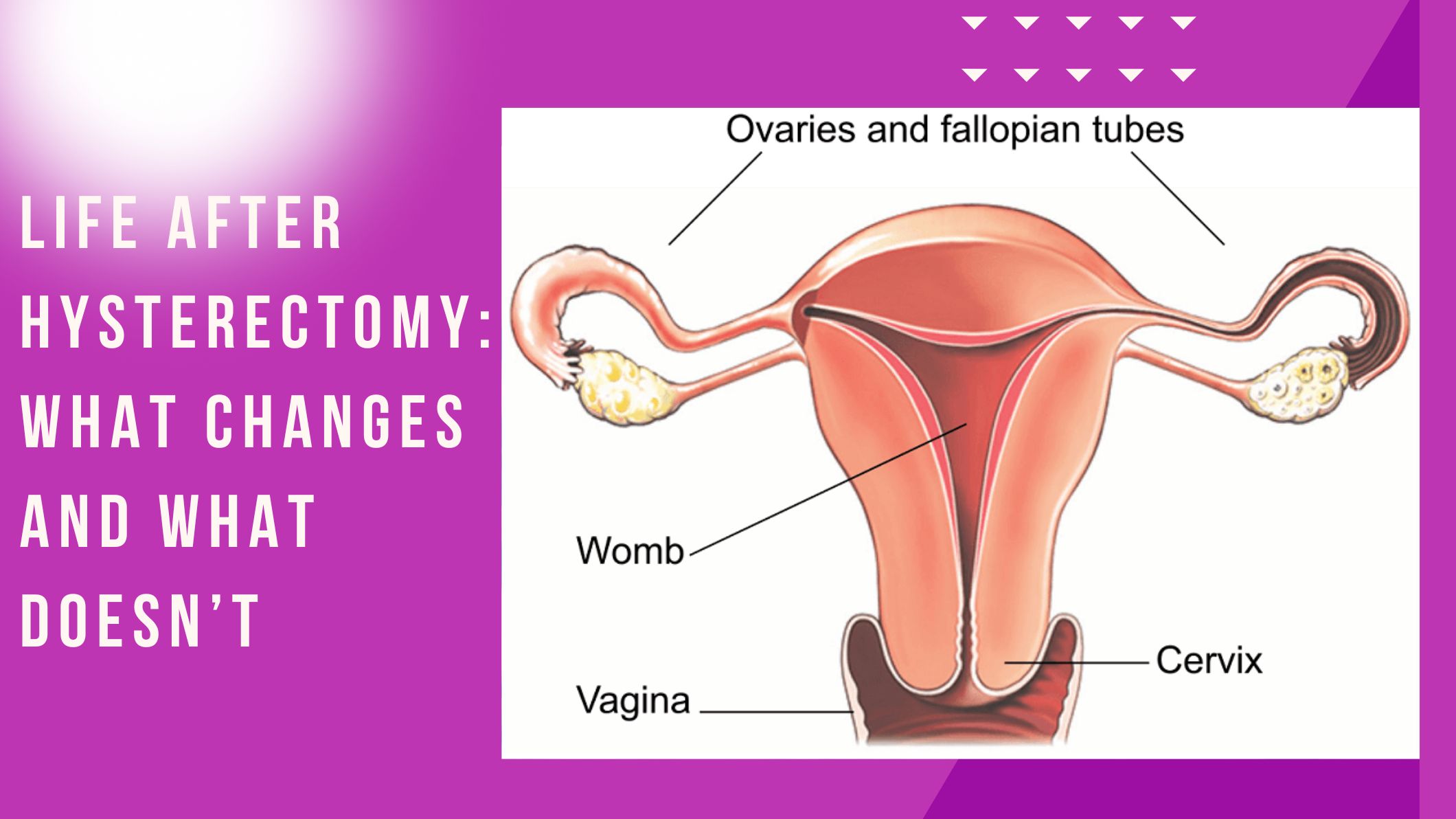
A hysterectomy, or the surgical removal of the uterus, is a common procedure performed to treat conditions such as fibroids, endometriosis, uterine prolapse, or chronic pelvic pain. While the decision to undergo a hysterectomy can feel overwhelming, understanding what changes — and what doesn’t — after the surgery can help you prepare physically and emotionally for life post-surgery.
Understanding a Hysterectomy
A hysterectomy may be performed in several ways — abdominal, vaginal, or laparoscopic — depending on the patient’s condition and medical history. In some cases, the ovaries and fallopian tubes may also be removed. Though the surgery eliminates certain symptoms and improves quality of life, many women wonder how it will affect their body, emotions, and daily routine afterward.
What Changes After a Hysterectomy
1. End of Menstrual Periods
One of the most immediate changes after a hysterectomy is the end of menstrual bleeding. Since the uterus is removed, you will no longer have periods. This can be a relief for women who previously experienced heavy or painful menstruation. However, if your ovaries are also removed (a procedure called oophorectomy), you may experience menopause symptoms sooner.
2. Hormonal Changes
If your ovaries are removed during the hysterectomy, your body will no longer produce estrogen and progesterone, the hormones responsible for regulating your menstrual cycle. This sudden hormonal drop can lead to menopause-related symptoms such as hot flashes, night sweats, mood swings, and vaginal dryness.
However, if the ovaries are preserved, your hormone production will continue normally, and you may not experience these symptoms immediately. In either case, your doctor may recommend hormone replacement therapy (HRT) to manage symptoms and support your overall well-being.
3. Relief from Pain and Discomfort
For many women, a hysterectomy brings long-awaited relief from chronic pelvic pain, heavy bleeding, or uterine disorders. The surgery can significantly improve quality of life by eliminating the root cause of discomfort. Most patients report feeling healthier, more energetic, and emotionally balanced after recovery.
4. Physical Recovery and Activity Level
Recovery after a hysterectomy can take several weeks, depending on the type of surgery performed. Laparoscopic and vaginal hysterectomies usually have shorter recovery times compared to open surgery. During this period, rest and gentle activity are essential. Gradually, you can return to your regular routine, exercise, and work.
What Doesn’t Change After a Hysterectomy
1. Your Femininity and Identity
A hysterectomy does not change who you are as a woman. Many women initially fear losing their sense of femininity after the surgery, but these feelings are usually temporary. Your identity, emotional strength, and ability to lead a fulfilling life remain unchanged. Emotional support, counseling, and open communication with loved ones can make this transition easier.
2. Your Sexual Desire and Pleasure
A common concern is whether sexual intimacy will be affected. The truth is that most women continue to have satisfying sex lives after recovery. In fact, many report an improvement in their sexual experiences because the pain or bleeding that once interfered with intimacy is gone. With proper healing and communication with your partner, sexual pleasure and desire can remain the same—or even improve.
3. Emotional Strength and Well-being
Emotionally, some women may experience sadness or mood changes after surgery, particularly if the procedure leads to early menopause. However, these feelings often subside with time and support. Practicing self-care, maintaining a healthy lifestyle, and seeking medical guidance when needed can help restore balance and confidence.
Living a Healthy Life After Hysterectomy
After recovery, most women return to normal, active lives without the discomfort of their previous symptoms. Regular exercise, a balanced diet, and routine medical check-ups can help maintain long-term health. It’s also important to prioritize emotional well-being — consider joining support groups or speaking with a counselor if you experience anxiety or mood changes.
Conclusion
A hysterectomy can mark a new beginning — one free from pain, discomfort, and constant health worries. While your body may undergo certain changes, your strength, identity, and femininity remain constant. With the right care and mindset, life after a hysterectomy can be healthy, fulfilling, and empowering.
Dr. Preeti Tandonprovides the best and most compassionate care for women undergoing hysterectomy surgery . With her expertise in laparoscopic and advanced gynecological surgeries, she ensures safe procedures, smooth recoveries, and personalized treatment for every patient.



